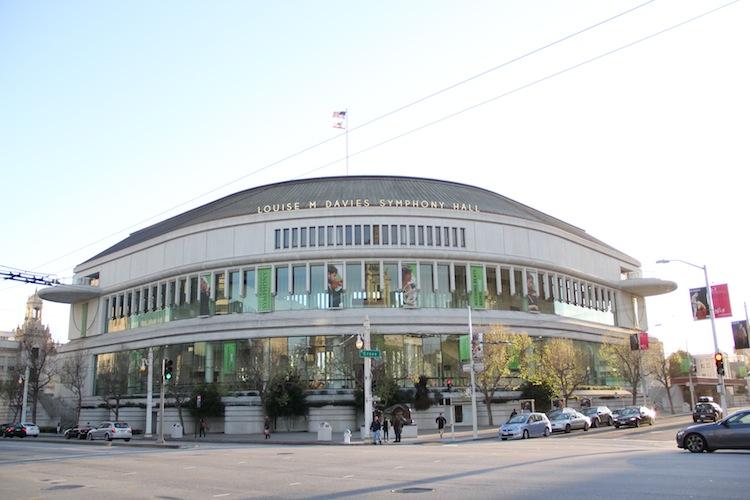San Francisco homelessness is completely a function of San Francisco progressivism, completely a function of progressives never correctly stating the problem, or worse, denying the problem; namely, that the homeless come to San Francisco to lie down and die. The homeless aren’t simply temporarily out of work.
From such a blind spot, progressives will never state the correct solution (that every psychiatrist knows): treatment, not housing. Disperse the homeless throughout the Bay Area into homes and community centers, i.e., not all in one neighborhood, and provide individual treatment. Stop thinking in collective terms; we’re not socialist. The progressive solution, Housing First, isn’t a solution, it’s just words.
Suckers for anyone who portrays himself as a victim, San Francisco progressives spinelessly instruct the police and courts to just “let ’em go.”
Progressive power in San Francisco derives from how progressives control city government—through district elections. In districts gerrymandered to produce progressive majorities, candidates for the board of supervisors never appeal to the whole city, never show moderation. Rather, to win, they show how radically more to the left they are than their adversary.
In a city of 500,000 voters, progressives need only 35,000 votes (less if fewer people vote) to win a seat on the board of supervisors. San Francisco is one of the last major cities in the nation to still have district elections.
Example: Dan White, the sole conservative on the board of supervisors, resigned in 1978. In part, it was because he was continually ridiculed by Supervisor Harvey Milk and Mayor George Moscone, who then schemed to not reinstate him.
Of course, had Mr. White been liberal, he would’ve been reinstated. And in part because Mr. White couldn’t make ends meet on his supervisor’s salary—half his firefighter salary—his wife, who was raising an infant, was forced to work 40 to 50 hours a week. Mr. White pleaded “victim,” and in liberal San Francisco, which hated him for murdering Mr. Milk and Mr. Moscone, the jury said, “Let ’em go.”
Thomas Fuller and Conor Dougherty wrote in The New York Times: “Some analysts see Ms. Breed’s removal as a cold political calculus by the city’s progressive faction: Removing her from office would give them a better shot at reclaiming the mayor’s office.
Treatment
What’s treatment?Or, whom is it for? A San Francisco progressive would answer, “Only for those willing to be treated.”
When it comes to social freedom, progressives are fanatic libertarians. Don’t touch my freedom! San Francisco progressives believe that anyone has the right to live on the street, defecate on the sidewalk, camp in city parks—certainly the right to refuse treatment, to refuse shelter. The American Civil Liberties Union (ACLU) vigorously defends this position.
A reader commented on Part I of this article: “Every year, courts all over this country rule on all kinds of issues, including the Supreme Court. Maybe it’s time to simply change the law back in order to force drug-addled folks and the mentally ill into facilities to help cure them of their addictions and demons. Leaving them on the street has failed. Period. Literally thousands of people are dying on the street because of their fentanyl use. This kind of neglect for the sake of tolerance is simply cruelty.”
Good social workers know that they must be both loving and tough. When a person who’s being treated mourns, “Oh, my God, this sucks,” the correct response is, “Get excited! That’s where the learning is.” But that requires support—a treatment program that gives the homeless, as human beings, an opportunity to work, to realize what they’re missing out on, the joy of work. And that requires a 12-step program that includes acknowledging their situation, those whom they’ve hurt, and then apologize. (Shellenberger, p. 156)
Treatment by whom?
The homeless-industrial complex? Layers of middlemen, inspectors, contractors, lawyers, lobbyists, and labor unions (for those $430,000 apartments)?
Another reader, Anais Nin, commented on Part I: “Unfortunately, the social service industry does not want to let go of its customers (the homeless). Cities use their homeless problem for fundraising and new political candidates use it for their platforms. In the meantime, big cities deteriorate. They disguise help such as new needles, food service and blankets, which just puts a Band-Aid on the problem, as compassion so that the problems stay for everyone to profit from. To enforce this, the ACLU is engaged in suing the city anytime it offers a solution. I have sat in on an eight-hour public city commissioner’s discussion with the mayor introducing tough love homeless solutions only to witness the paid activists hired on by the ACLU on their website, [preventing] loudly any solution.”
Mr. Shellenberger wrote that for 2021 and 2022, San Francisco spent $1.1 billion and proposed legislation to raise taxes on businesses to get that $1.1 billion up to $2 billion.
This was possible because San Francisco voters always supply funds for the less fortunate. They love the idea of “tax the rich, build an egalitarian society.” As if they’re Marxists, San Francisco progressives believe that redistribution of money and ownership is the solution to social problems.
Where is the statistical, factual basis for this? In 1964, at the start of the War on Poverty, poverty nationwide was 15 percent. To this day, on average, the needle has never moved. Yet the cost to the nation has been $23 trillion—today, paid for entirely by borrowing.
Also with the War on Poverty came an increase in funding for education, which doubled from 1970 to 2000 (and continues to rise). Why, then, did test scores drop 25 percent? According to the U.S. Department of Education, for the past 40 years, only 36 percent of the nation has tested proficient in reading and math—which is why the U.S. Navy dropped the reading level for its entrance exam to fourth grade, the level at which the average U.S. high school senior graduates.
And with the War on Poverty came Medicare—universal health care for half the nation. This increased demand for health care far exceeded what citizens were asking for and removed citizens as consumers, as patients, from ever negotiating price, and that’s precisely why U.S. health insurance devolved to prepaid health care—which costs three times more than before Medicare, and two times more than anywhere else in the world. Because the free market for health care no longer exists. That market was usurped by government.
In sum, progressives have normalized aberrant behavior—decriminalizing it, destigmatizing behavior that’s simply incompatible with life in a city where hundreds of thousands of people live side by side. Yet the ACLU goes out of its way to defend the right of demonstrably psychologically disturbed persons to break the law. Because they’re too mentally ill to be responsible for their actions but not mentally ill enough to be hospitalized.
San Francisco progressives don’t want to face the truth that a high number of homeless come to San Francisco because smaller towns across the nation have pushed them out, and because San Francisco doesn’t force them into mental health care or a shelter. They come for clean needles and supervised drug injections.
Ruining Our Cities
Progressives are ruining our cities:- They divert funds from shelters and already-built housing to build new housing (which doesn’t happen).
- They defend the homeless as victims (which allows the homeless to live on the streets).
- They intimidate expert policymakers as well as journalists by attacking them as motivated by hatred of the poor, of people of color, of the sick (opening the door to drug dealing, violence, and theft— coupled with the fact that San Francisco doesn’t prosecute for shoplifting under $950).
Their second great sleight of hand is to blame the United States’ survival-of-the-fittest capitalist economy, i.e., to wish away the flip side of individual liberty: individual responsibility. Progressives dismiss responsibility by declaring those not financially successful to be victims of racism and capitalism.
Yes, the percentage of homelessness among African Americans is high, as is the percentage of African Americans who commit crime, but to equate racism with crime and poverty is to make the cardinal error in logic of equating correlation with causation. African, Latin, and Native Americans, people from an aural culture struggling to succeed in an advanced industrialized economy, are less financially successful. They commit more crime.
Allow any group to claim victimhood and to not be punished for its misdeeds, and their nation will devolve into lawlessness. Social, political, and economic responsibility will be so compromised that the nation will lose those freedoms.
Mr. Shellenberger wrote: “While we should hold our elected officials responsible, we must also ask hard questions of the intellectual architects of their policies, and of the citizens, donors and voters who empower them. What kind of a civilization leaves its most vulnerable people to use deadly substances and die on the streets? What kind of city regulates ice cream stores more strictly than drug dealers who kill 713 of its citizens in a single year? What kind of people moralize about their superior treatment of the poor, people of color, and addicts while enabling and subsidizing the conditions of their death?”
Julie Bosman wrote in The New York Times that, rather than accept excuses from those who can’t or won’t work, we should look at the aspiring immigrants streaming across our southern border. Without education or job skills, 8,000 immigrants flooded into Chicago in 2022.
From everywhere, volunteers came to assist them, bringing food and clothing (and stepping over the homeless to do so). They knew that those immigrants couldn’t wait to start working. They aren’t asking for $430,000 homes; in a few years, they’ll be purchasing them.
A restaurant applies for a permit to place tables and chairs on the sidewalk. Well, so should the homeless. Disrespect for the law will destroy a nation. To treat people differently before the law corrupts and erodes the foundation upon which society is built. And it erodes cities—where humanity flourishes at its highest.
Free societies require constant vigilance against forces that undermine them—a responsibility that can’t be delegated. To entitle citizens to material equality, which is possible only through force, is to send a nation back to the Middle Ages. The Soviet Union. Cuba.
New York City has the Statue of Liberty; San Francisco needs a Statue of Responsibility.








